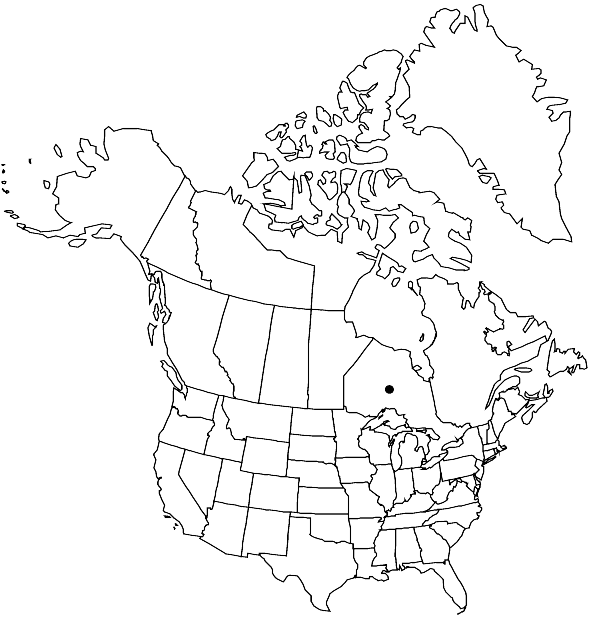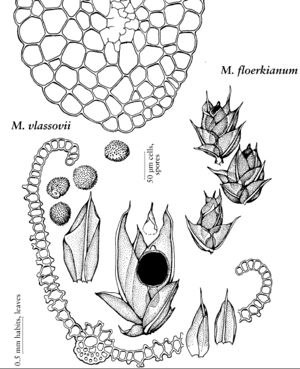Difference between revisions of "Microbryum floerkeanum"
Syn. Musc. Eur., 11. 1860,.
Basionym: Phascum floerkeanum Weber & D. Mohr Bot. Taschenbuch, 70, fig. 451. 1807
FNA>Volume Importer |
imported>Volume Importer |
||
| (2 intermediate revisions by 2 users not shown) | |||
| Line 51: | Line 51: | ||
|publication year= | |publication year= | ||
|special status= | |special status= | ||
| − | |source xml=https:// | + | |source xml=https://bitbucket.org/aafc-mbb/fna-data-curation/src/2e0870ddd59836b60bcf96646a41e87ea5a5943a/coarse_grained_fna_xml/V27/V27_928.xml |
|subfamily=Pottiaceae subfam. Pottioideae | |subfamily=Pottiaceae subfam. Pottioideae | ||
|genus=Microbryum | |genus=Microbryum | ||
Latest revision as of 21:29, 5 November 2020
Distal laminal cells weakly convex superficially, adaxial surface of costa not mammillose. Seta extremely short, nearly absent. Capsule nearly spherical, cleistocarpous. Spores papillose, 20–25 µm.
Phenology: Capsules mature in late fall (Oct–Nov).
Habitat: Soil, fields, pastures
Elevation: low elevations
Distribution

Ont., Europe, sw Asia, n Africa.
Discussion
The leaves of Microbryum floerkeanum are ovate to ovate-lanceolate and sheath the immersed capsule. The papillae occur near the apex of the leaf, one per lumen, and are large, nearly covering the lumen. The calyptra is variably papillose, merely rough, or smooth. Variety badium (Bruch & Schimper) Schimper is poorly distinguishable, but may be segregated by its long-acuminate leaf apices—the typical variety has short-acuminate apices.
Selected References
None.
Lower Taxa
None.
